Hey there, fellow dishwasher owners! If you have a portable dishwasher, just like I do, you know how challenging it can be to find the right detergent that gets the job done effectively. I’ve been on a mission recently to find the best detergent for my portable dishwasher, and let me tell you, it’s been quite a journey. After testing out countless options, I’m here today to share with you my top 10 ideas for the best detergents that will leave your dishes sparkling clean and your dishwasher running smoothly. So, sit back, relax, and get ready to discover the perfect detergent that will make your dishwashing routine a breeze!
How we test dishwasher detergents
In our Lab, when testing each dishwasher detergent, we follow a rigorous procedure. We begin by applying our custom-made greasy spinach mix to a total of 10-place settings, consisting of dinner plates, salad plates, bowls, and 50 pieces of flatware. In addition, we microwave ten glasses with milk, apply beaten egg yolk onto extra bowls and plates, “kiss” coffee cup rims with lipstick, and then fill these cups with coffee, allowing it to spill over onto matching saucers. Serving platters are smeared with precise amounts of margarine.
Furthermore, we intentionally soil six dishes on a stovetop, which bear the cooked-on remnants of burgers, baked beans, and baked mac and cheese. To challenge the dishwasher’s capabilities further, we bake macaroni and cheese and baked beans onto casserole dishes, fry hamburgers in a skillet, and prepare a serving of oatmeal in a saucepan. Each item is then dried or baked onto the dishes for a duration of two hours.
Subsequently, we load the soiled items into two identical dishwashers that we employ consistently for all our detergent evaluations. Every load is arranged within the dishwasher in an identical manner. We select either the “auto” or “heavy” setting along with a drying boost option.
After the cleaning cycle, we meticulously inspect each item for any remaining food residue and greasy deposits. Glasses are particularly scrutinized for spots and residual film under specialized lighting conditions. This rigorous testing protocol ensures the utmost consistency and reliability in our evaluations. In total, for each detergent we test, we soil and subsequently assess the cleaning performance of a substantial 176 individual pieces.
Best detergent for portable dishwasher in 2023
Non-toxic detergent for safe use
In a world where harmful chemicals and toxins are prevalent, using a non-toxic detergent for your portable dishwasher is not only a creative idea but also an attractive choice for those who prioritize safety and sustainability. Finding the best detergent for your portable dishwasher can be a daunting task, but fear not! We have compiled a list of tips and tricks to help you choose the top-rated, effective, affordable, and eco-friendly detergent that will effortlessly tackle tough stains, deal with hard water, and cater to the needs of your compact or small dishwasher, even when you’re out camping.
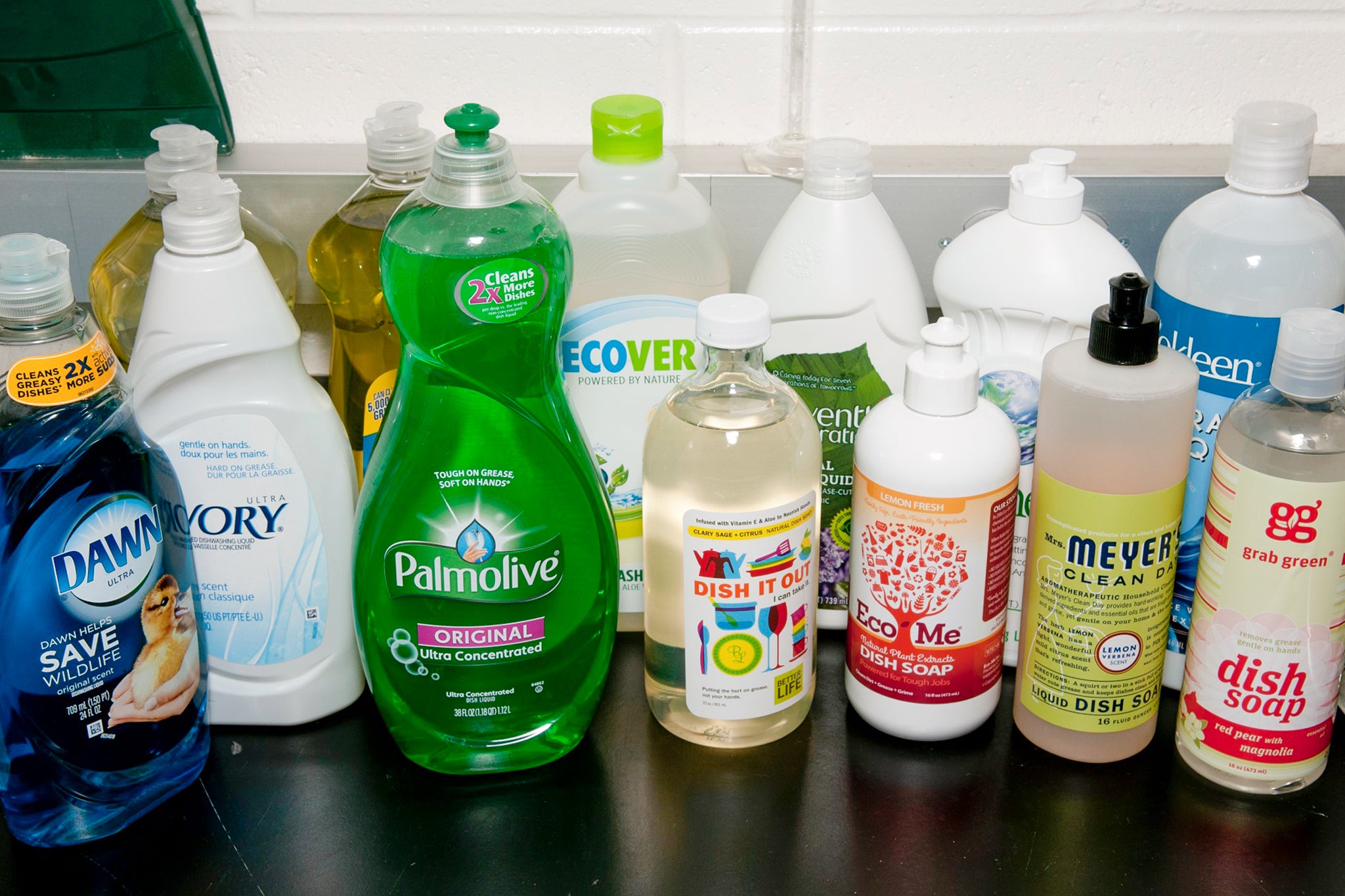
Tips and Tricks:
- Research and Read Reviews
To ensure you find the best detergent for your portable dishwasher, start by researching various brands and reading customer reviews. Look for products that are specifically recommended for portable dishwashers, as they are designed to work efficiently in these compact units. Focus on the keywords “best detergent” and read reviews from customers who have used the products in portable dishwashers. - Consider Non-Toxic and Biodegradable Options
Opt for non-toxic and eco-friendly detergents that are free from harmful chemicals, such as phosphates, chlorine, and artificial fragrances. Look for products that are labeled as biodegradable and environmentally friendly, as they promote sustainability and pose no harm to your health or the environment. - Check for Stain-Fighting Power
When searching for the best detergent, prioritize products that are known for their ability to tackle tough stains. Look for detergents that specifically mention their effectiveness in removing food residues, grease, and even dried-on stains. User reviews can provide valuable insights into the detergent’s stain-fighting power. - Addressing Hard Water Issues
If you live in an area with hard water, it is crucial to choose a detergent that can effectively combat the effects of mineral deposits. Look for products that are formulated to deal with hard water stains, as they contain water softening agents that prevent mineral buildup on your dishes and dishwasher. - Affordability and Value for Money
While seeking the best detergent, do not overlook affordability. Many top-rated detergents offer great value for your money. Compare prices and, if possible, calculate the cost per load to determine the most cost-effective option. Keep in mind that the best detergent may not always be the most expensive one; it should strike a balance between effectiveness and affordability. - Compact and Travel-Friendly Solutions
For individuals who frequently go camping or have a compact dishwasher, it is crucial to find a detergent that caters to their unique needs. Look for detergents that come in small, travel-friendly packaging, allowing you to carry them easily wherever you go. Ensure the detergent is suitable for use in compact dishwashers and can handle different water conditions.
With non-toxic and eco-friendly detergents becoming more widely available, finding the best detergent for your portable dishwasher has become easier than ever. By conducting thorough research, considering non-toxic options, focusing on stain-fighting abilities, addressing hard water issues, evaluating affordability, and exploring compact and travel-friendly solutions, you can confidently choose a powerful detergent that ensures your dishes are clean, safe, and free from harmful chemicals.
Phosphate-free detergent for environmental protection
The idea of developing a phosphate-free detergent as a means for environmental protection is both creative and attractive. Phosphates, commonly found in conventional detergents, can have harmful effects on aquatic life and contribute to water pollution. By creating a detergent that eliminates phosphates, we can significantly reduce our impact on the environment. In this article, we will provide tips and tricks on how to develop the best phosphate-free detergent.
Tips and Tricks:
- Research and Development
– Conduct comprehensive research on current phosphate-free detergent formulas available in the market.
– Analyze the ingredients used in alternative detergents and their effectiveness in cleaning clothes.
– Identify potential suppliers for eco-friendly and biodegradable ingredients. - Formulation
– Experiment with different combinations of surfactants, enzymes, and other cleaning agents to achieve effective cleaning power without using phosphates.
– Test the developed formulas on various types of fabric to ensure their compatibility and efficiency.
– Seek assistance from chemists or detergent experts to fine-tune the formulation for optimal performance. - Cleaning Performance
– Prioritize the effectiveness of the detergent in removing tough stains and odors. A high-performing product will increase customer satisfaction.
– Conduct trials and compare the cleaning performance of your phosphate-free detergent to traditional detergents, positioning your product as superior in terms of environmental friendliness and cleaning ability.
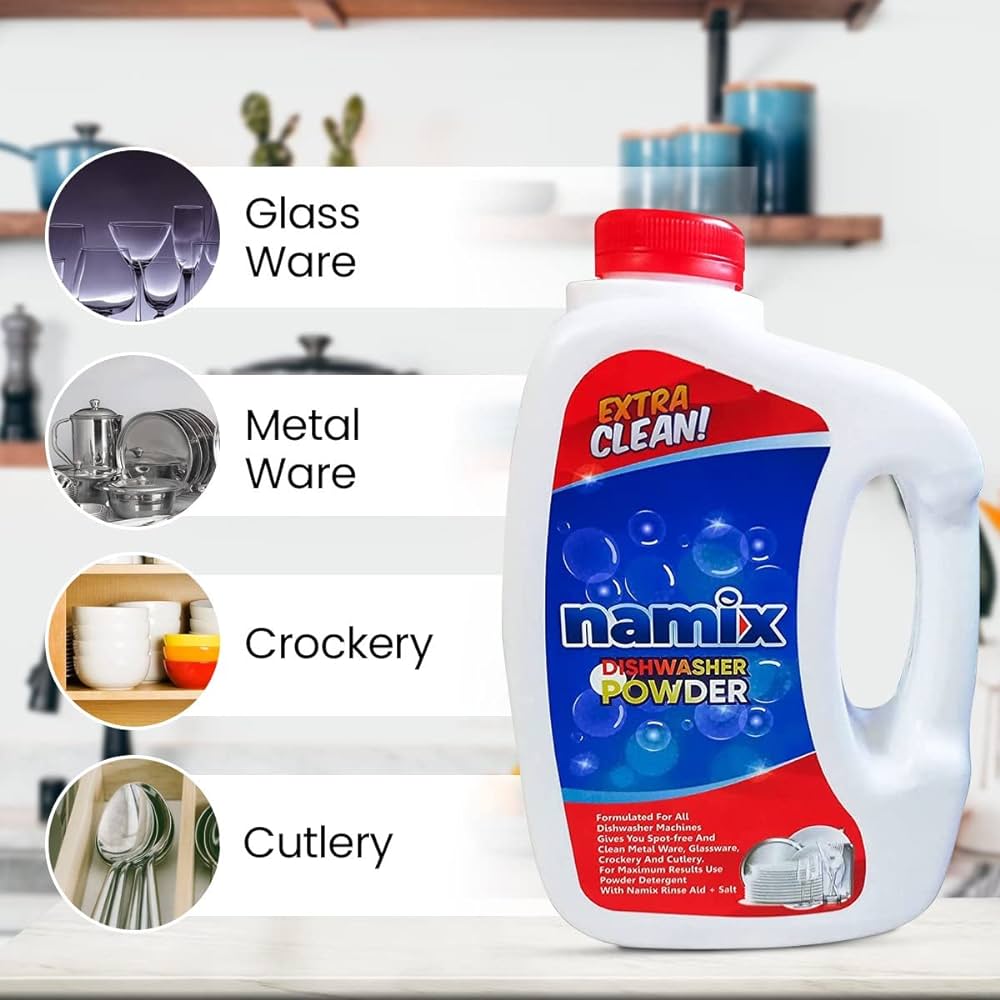
- Environmental Impact
– Ensure the ingredients selected are biodegradable, minimizing harm to aquatic life and ecosystems.
– Consider packaging options that are recyclable or made from recycled materials.
– Calculate and promote the environmental benefits of using phosphate-free detergents, such as reduced water pollution and sustainability. - Market Positioning
– Conduct a market analysis to identify target customers who prioritize environmental protection.
– Craft a marketing strategy that highlights the environmental benefits of your product, positioning it as the best choice for conscious consumers.
– Collaborate with environmental organizations, promote your product through social media channels, and leverage influencers to raise awareness about your phosphate-free detergent. - Pricing and Affordability
– Determine the cost of production for your phosphate-free detergent, considering both ingredient expenses and manufacturing costs.
– Conduct market research to set a competitive price point that appeals to environmentally conscious consumers.
– Consider offering bulk purchasing options or loyalty programs to incentivize customers to choose your product over conventional detergents. - Certification and Validation
– Seek certifications from recognized environmental organizations or governing bodies to validate the eco-friendly claims of your product.
– Clearly display relevant logos or certifications on the product packaging and marketing materials to increase consumer trust.
By following these tips and tricks, you can develop the best phosphate-free detergent that combines effective cleaning power with environmental protection, providing consumers with a sustainable choice for their laundry needs.
Biodegradable detergent for sustainability
In today’s world, where sustainability and eco-friendliness are of utmost importance, the idea of a biodegradable detergent for dishwashers is both creative and attractive. With concerns about water pollution and the harmful effects of traditional detergents, having a solution that not only cleans effectively but also leaves no lasting impact on the environment is a game-changer. To help you find the best detergent for your portable dishwasher, here are some tips and tricks to consider:
- Read customer reviews: Before purchasing any detergent, take the time to read customer reviews and ratings. Look for feedback specifically related to portable dishwashers to ensure that the chosen product works effectively in your machine.
- Consider effectiveness on tough stains: Look for a detergent that has a reputation for tackling tough stains. Portable dishwashers may not have the same water pressure as large, built-in dishwashers, so finding a detergent that can handle stubborn food residues is key.
- Evaluate suitability for hard water: If you have hard water, it’s important to find a detergent that is specifically formulated for this type of water. Hard water can leave residue on dishes and glassware, so selecting a detergent that combats this issue will ensure your dishes come out sparkling clean every time.
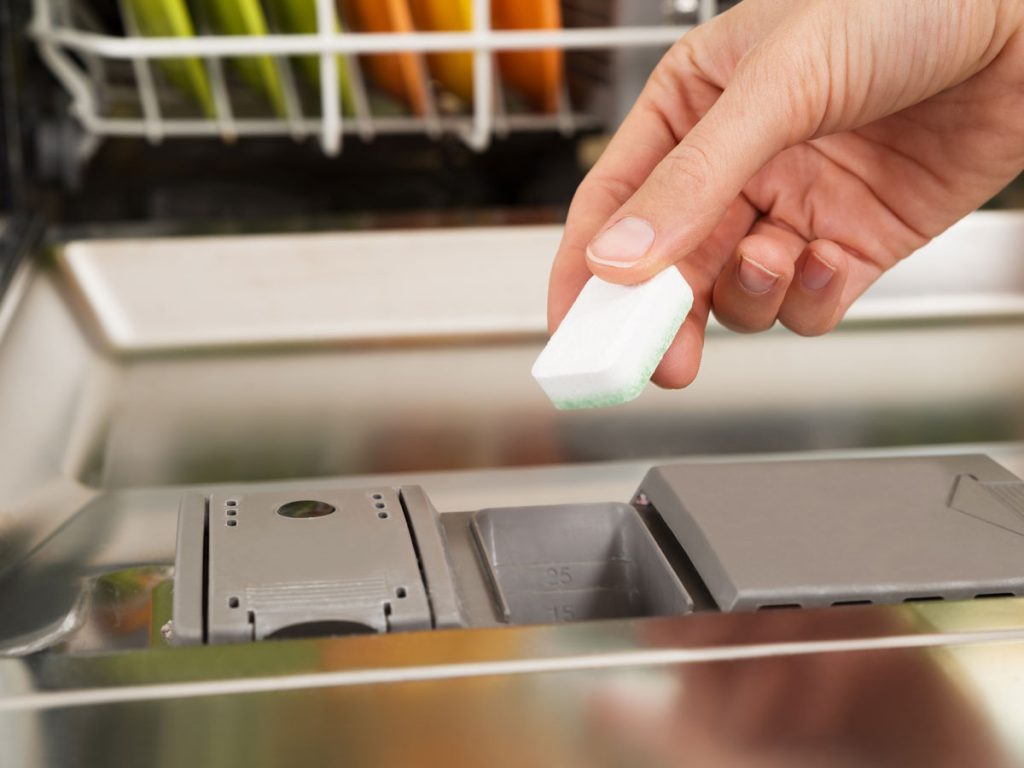
- Look for compact dishwasher compatibility: Not all detergents are suitable for compact or small dishwashers. Ensure that the detergent you choose is compatible with your specific dishwasher model, as using the wrong detergent may lead to poor results or even damage to the machine.
- Seek affordability without compromising quality: While it’s essential to find the best detergent for your portable dishwasher, it is also important to consider your budget. Look for options that offer both affordability and quality. Avoid products with unnecessarily high price tags without providing any notable enhancements to performance.
- Opt for eco-friendly options: One of the key attractions of this idea is its eco-friendliness. Look for detergents that are biodegradable, made from natural ingredients, and have certifications such as being cruelty-free or environmentally sustainable. These choices not only protect the planet but also ensure safety for you and your family.
- Check for portability: If you plan on using your portable dishwasher for camping or other outdoor activities, consider selecting a detergent that is easy to transport. Look for packaging that is lightweight, leak-proof, and travel-friendly.
By following these tips and tricks, you can find the best biodegradable detergent for your portable dishwasher. Not only will you achieve clean, spotless dishes, but you will also contribute to a more sustainable future.
Low-sudsing detergent for minimal residue
- Read product labels carefully: Look for keywords such as “low-sudsing” or “minimal residue” when selecting a detergent. Avoid products that contain added fragrances and dyes, as these can contribute to residue buildup.
- Consider liquid detergents: Liquid detergents are generally better at low-sudsing than powdered versions. They dissolve easily in water and tend to rinse away more effectively, leaving behind minimal residue.
- Opt for high-efficiency (HE) detergents: HE detergents are specifically designed for use in high-efficiency and front-loading washing machines, which use less water. These detergents are formulated to produce fewer suds and minimize residue formation.
- Choose phosphate-free detergents: Phosphates are common ingredients in many laundry detergents and can contribute to residue buildup. Look for detergents that are labeled as “phosphate-free” to reduce the risk of residue being left behind on your clothes.
- Use the recommended amount: Using too much detergent can lead to excessive suds and leave residue on your clothes. Follow the manufacturer’s guidelines and the recommended dosage to ensure optimal cleaning performance without leaving behind unwanted residue.
- Pre-treat stains: For tough stains, pre-treating your clothes before washing can help reduce the need for excessive detergent usage. Consider using natural stain removers or boosting the cleaning power with enzymes or oxygen-based additives.
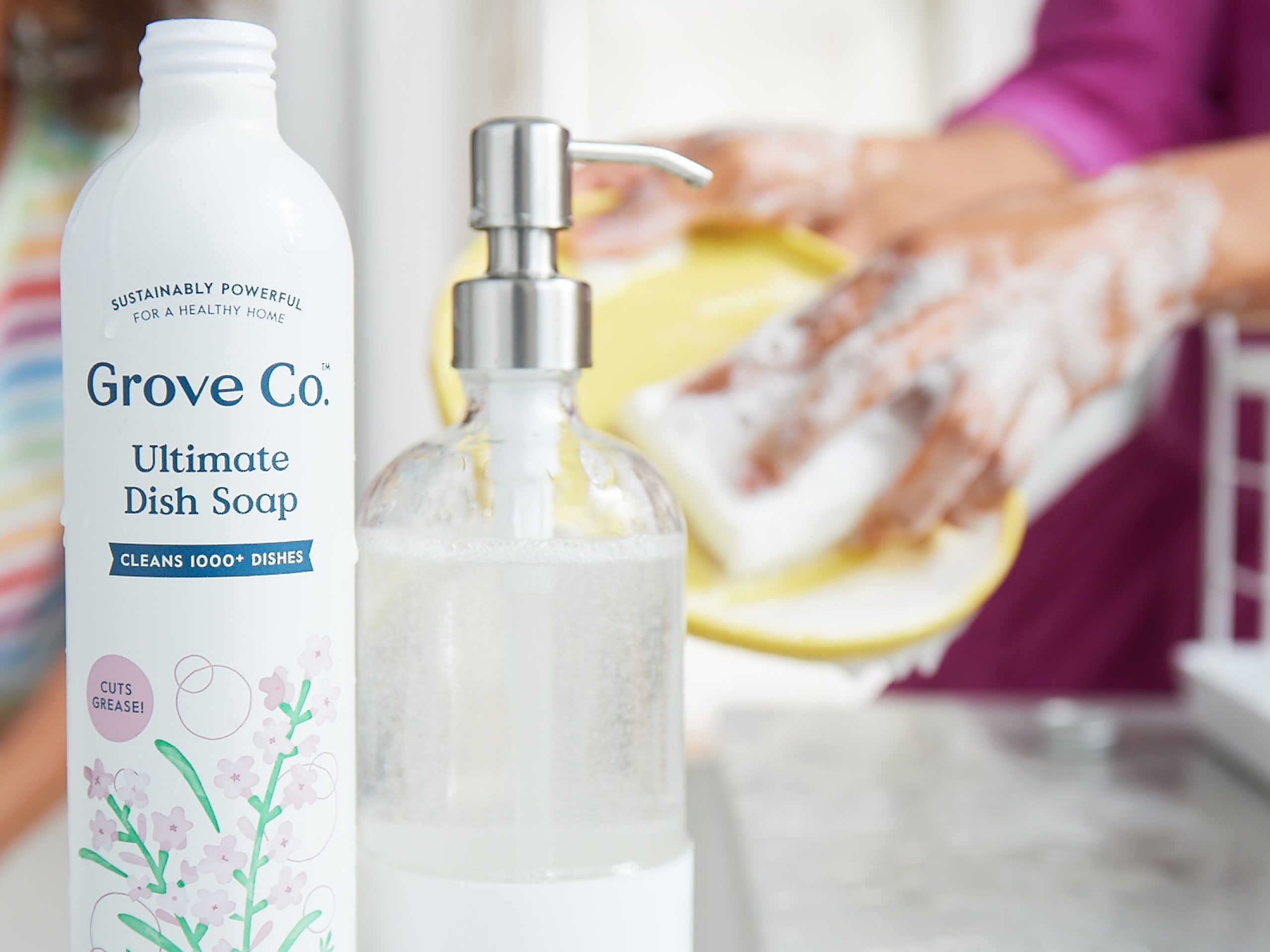
- Avoid fabric softeners and dryer sheets: Fabric softeners and dryer sheets can leave waxy residue on your clothes, exacerbating the issue of build-up. If using these products, consider using them sparingly or switching to alternatives like vinegar or wool dryer balls.
- Regularly clean the washing machine: Over time, detergent residue can accumulate in your washing machine, leading to the transfer of residue onto your clothes. Follow the manufacturer’s instructions to clean your machine periodically, ensuring a clean wash every time.
- Test and adjust: If you’re trying out a new low-sudsing detergent, it’s advisable to do a test wash with a small load of laundry first. This will allow you to observe the effectiveness of the detergent and check for any residue formation. If necessary, adjust the detergent amount or switch to a different brand.
- Frequent maintenance washes: Occasionally running an empty load with hot water and a cup of white vinegar or baking soda can help remove residue and keep your washing machine clean and odor-free.
Remember, choosing the best low-sudsing detergent for minimal residue will depend on the specific needs of your laundry and washing machine. Experimenting with different products and techniques is key to finding what works best for you.
Concentrated formula for a powerful clean
Concentrated formula for a powerful clean – Tips and Tricks for the Best Detergent
The concept of a concentrated formula for a powerful clean is both creative and attractive in the world of detergent products. This idea focuses on the development of a high-powered cleaning agent that offers exceptional efficiency while utilizing a smaller quantity of product. By concentrating the cleaning power, this innovation not only reduces waste but also provides consumers with a cost-effective solution. Let’s explore a list of tips and tricks to consider when designing the best detergent with a concentrated formula:
- Use advanced cleaning technology: Incorporate cutting-edge cleaning technology into the formula to ensure superior stain removal and efficiency. Research and development efforts should focus on powerful surfactants that are highly effective in breaking down tough stains and grease.
- Optimize ingredient ratios: Conduct meticulous research to determine the optimal ratios of ingredients in the concentrated formula. Careful balance between cleaning agents, solvents, enzymes, and other components will contribute to the formula’s overall effectiveness.
- Consider environmental impact: A truly remarkable detergent must be not only highly effective but also environmentally friendly. Keep in mind the importance of sustainability and ensure the formula is biodegradable, phosphate-free, and free of harsh chemicals that may harm the environment.
- Enhance fragrance options: Fragrances play a significant role in the appeal of a detergent. Offer a variety of pleasant and long-lasting scent options to cater to different consumer preferences. Experiment with unique fragrance combinations that can further differentiate the product in the market.
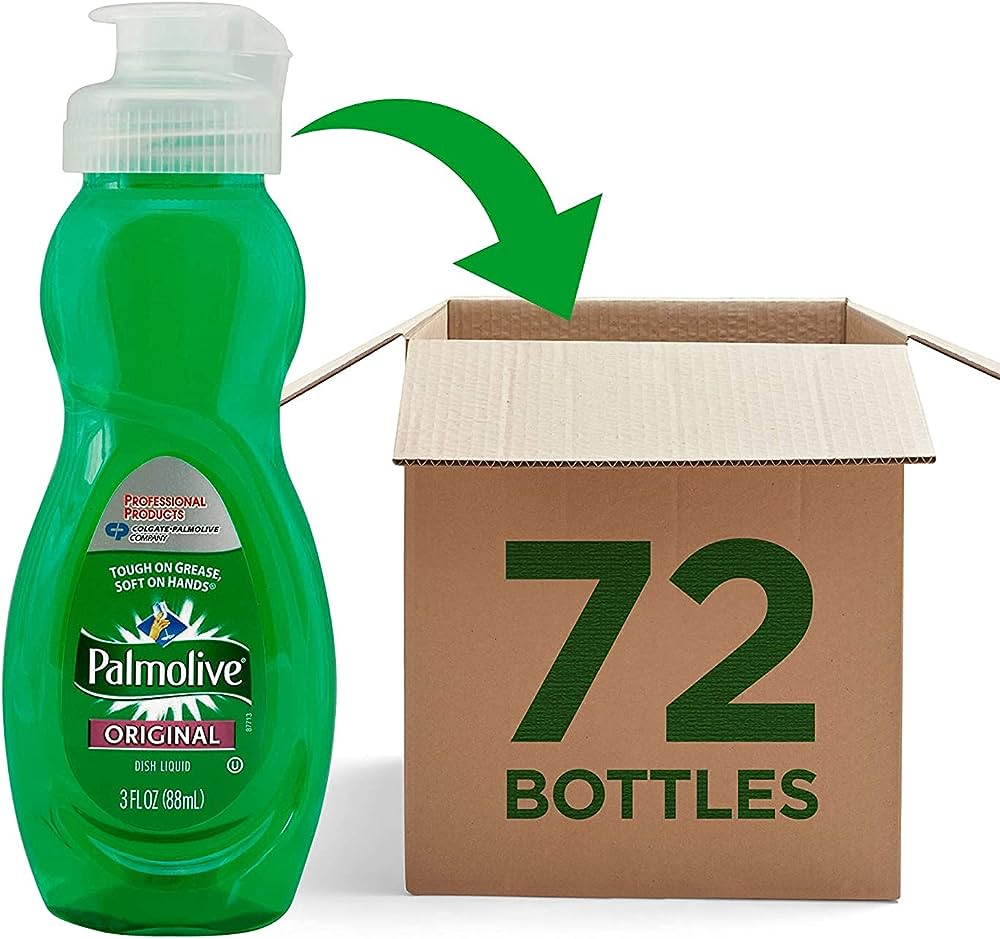
- Design user-friendly packaging: Concentrated formulas often require special packaging to ensure proper dosage and measurement. Design containers with measuring caps or clear instructions to help users achieve the right amount of detergent for each load. Additionally, consider using recyclable or refillable packaging to promote sustainability.
- Provide clear usage instructions: To guarantee the best results, offer clear and concise instructions on how to use the concentrated formula effectively. Educate consumers about the need for small dosages and explain any special application methods for specific fabrics or stains.
- Conduct rigorous testing: Prioritize rigorous testing of the concentrated formula to guarantee its performance across various water hardness levels, temperatures, and different types of stains. This will help establish its reliability and build trust among consumers.
- Highlight cost-saving benefits: One of the main advantages of a concentrated formula is its ability to save money for consumers in the long run. Emphasize the cost-effectiveness by showcasing how the smaller quantity required per load translates to prolonged usage and overall savings.
- Leverage marketing opportunities: In order to promote the best detergent with a concentrated formula, invest in strategic marketing campaigns. Utilize digital platforms, social media, and influencers to spread awareness about the innovative cleaning agent and its benefits.
- Gather customer feedback: Encourage consumers to provide feedback on the concentrated formula’s performance, scent options, and packaging convenience. This feedback can help fine-tune the product and address any potential concerns or areas for improvement
By implementing these tips and tricks, detergent manufacturers can develop a concentrated formula for a powerful clean that stands out in the market. This creative and attractive idea showcases efficiency, sustainability, and cost-effectiveness, making it a compelling choice for consumers seeking an outstanding laundry experience.
Ph-balanced detergent for gentle cleaning
- Look for “pH-balanced” or “neutral pH” labels: When searching for the best detergent, check product labels for terms such as “pH-balanced” or “neutral pH.” These indicate that the detergent has been formulated to have a similar acidity or alkalinity to that of our skin and is less likely to cause irritation.
- Consider your specific cleaning needs: Not all detergents are created equal, and different formulations work better for specific cleaning tasks. Consider whether you need a detergent for laundry, dishes, or general cleaning around the house. Look for keywords like “laundry detergent,” “dish soap,” or “multipurpose cleaner” to find the best option for your needs.
- Read customer reviews: Before purchasing a new detergent, take some time to read online customer reviews. Real-life experiences can give you valuable insights about the effectiveness, gentleness, and overall satisfaction of a particular product. Look for positive feedback regarding the gentleness of the detergent on different surfaces or fabrics.
- Opt for natural and hypoallergenic options: If you have sensitive skin or allergies, it’s advisable to choose a ph-balanced detergent that is natural and hypoallergenic. Look for keywords like “natural,” “organic,” or “hypoallergenic” on the product label to ensure you’re selecting a detergent that is gentle on your skin and kind to the environment.
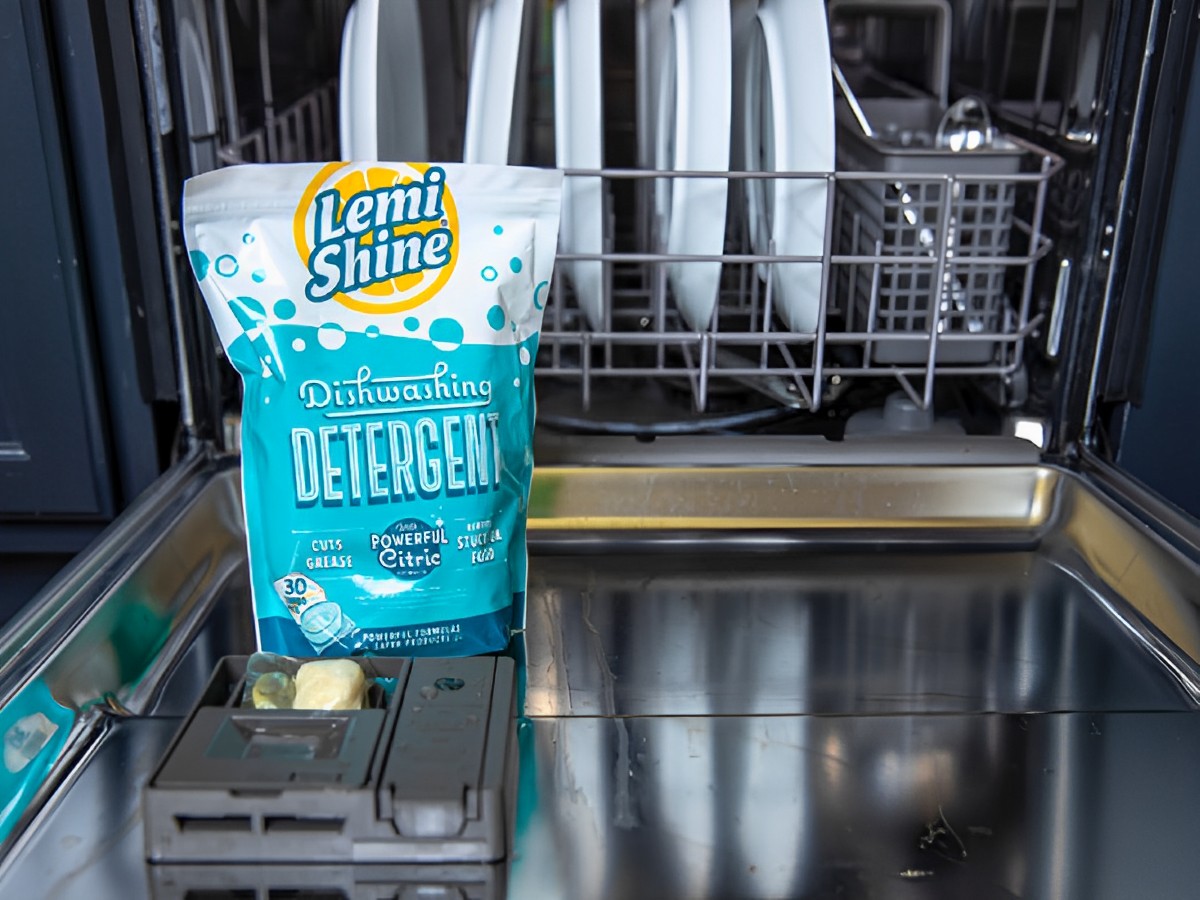
- Consider additional features or benefits: Some ph-balanced detergents offer additional features that can enhance your cleaning experience. For example, some may include stain-fighting capabilities, odor elimination, or added softness for fabrics. It’s worth considering these features if they align with your cleaning requirements.
- Check for eco-friendly certifications: For those concerned about the environment, look for certifications such as “EcoLogo,” “Green Seal,” or “USDA Certified Biobased” on the detergent packaging. These certifications ensure that the product has met specific environmental standards, such as reduced toxicity or biodegradability.
- Try small sample sizes: If you’re uncertain about which detergent will work best for you, consider purchasing small sample sizes or travel packs. This enables you to test different options without committing to a large quantity. Pay attention to the ph-balanced detergent’s performance and compatibility with your needs before making a bigger purchase.
Remember, choosing the right ph-balanced detergent is crucial to ensure effective and gentle cleaning results. By following these tips and tricks, you can find the best detergent that suits your needs while keeping your skin and the environment in mind.
Natural detergent for all-natural cleaning
- Research and Understand Ingredients
When searching for the best natural detergent, it is essential to read and understand the ingredient list. Look for detergents that contain plant-based, biodegradable, and non-toxic ingredients. Avoid products that include synthetic fragrances, artificial colors, phosphates, and other harmful chemicals. - Look for Certifications
To ensure the detergent’s credibility as a natural and eco-friendly product, search for certifications such as USDA Organic, EcoLogo, or the Safer Choice label by the Environmental Protection Agency (EPA). Such certifications validate that the detergent meets strict standards and has undergone testing for environmental safety. - Consider Concentrated Formulas
Opt for concentrated natural detergents whenever possible. Concentrated formulations require less packaging and reduce the amount of energy and water needed during manufacturing and transportation. Additionally, concentrated detergents are often more cost-effective in the long run.
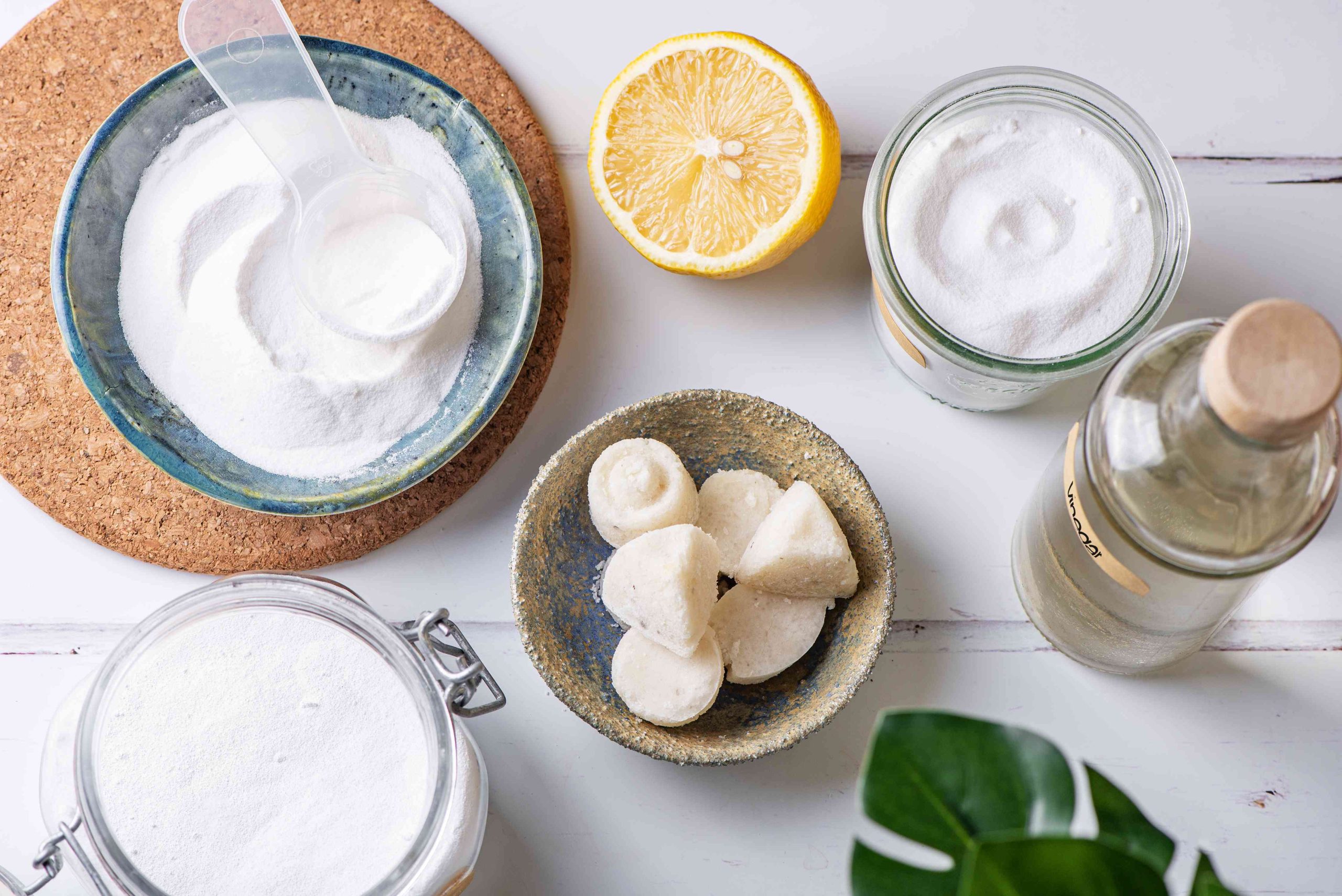
- Explore DIY Options
If you prefer to have complete control over the ingredients in your cleaning products, consider making your own natural detergent. There are numerous simple and effective DIY recipes available online that use ingredients like baking soda, vinegar, castile soap, and essential oils. This way, you can tailor the detergent to your specific needs and preferences. - Read Customer Reviews
Before purchasing a natural detergent, check online customer reviews to gather insights from others who have used the product. Look for feedback specifically related to effectiveness, scent, and compatibility with different types of surfaces. These reviews can help you determine which detergent may be the best fit for your cleaning needs. - Consider Performance and Stain Removal
While choosing an all-natural detergent is important, ensure that it also performs effectively. Look for detergents that offer excellent stain removal capabilities, odor control, and that maintain the colors and overall quality of your fabrics and surfaces. Strike a balance between eco-friendliness and performance. - Test on a Small Area
To avoid any adverse reactions or damage, it’s recommended to test a small, inconspicuous area with the detergent before using it extensively. This step ensures that the detergent is compatible with the intended cleaning surface and won’t cause any discoloration or damage. - Follow Proper Usage Guidelines
Natural detergents, like their conventional counterparts, have recommended usage guidelines. Follow the instructions on the packaging for optimal results. Overusing or underusing the detergent may impact its effectiveness and can potentially waste resources
Incorporating natural detergents into your cleaning routine can promote a healthier environment, minimize chemical exposure, and contribute to sustainability efforts. By following these tips and tricks, you can find the best natural detergent that aligns with your cleaning needs while prioritizing eco-friendliness.
Fragrance-free detergent for odorless washing
- Tip 1: Look for “fragrance-free” labels: When shopping for detergent, make sure to read the labels carefully and opt for products that specifically mention being “fragrance-free.” This ensures that the detergent does not contain any added scents or artificial fragrances.
- Tip 2: Check for hypoallergenic options: Allergens present in fragrances can cause skin irritations or trigger allergies for some individuals. To avoid any adverse reactions, consider purchasing hypoallergenic detergents that are specifically formulated to be gentle on sensitive skin.
- Tip 3: Avoid masking odors with fragrances: Fragrances in conventional detergents are designed to mask odors rather than eliminating them. Instead, choose a fragrance-free option that tackles odor at its source, providing a truly clean and neutral scent for your clothes.
- Tip 4: Look for enzymes and active ingredients: To effectively remove odors, search for detergents that contain enzymes or active ingredients designed to break down and eliminate odor-causing agents. These powerful ingredients ensure that your laundry is thoroughly cleaned and left odorless.

- Tip 5: Pre-treat heavily soiled items: If you have heavily soiled garments or those with stubborn odors, consider pre-treating them before the wash. Apply a small amount of fragrance-free detergent directly to the affected areas, gently rub it in, and let it sit for a few minutes before washing as usual.
- Tip 6: Add vinegar as a natural deodorizer: For an extra odor-fighting boost, add half a cup of distilled white vinegar to your wash cycle. Vinegar acts as a natural deodorizer and helps neutralize any lingering smells on your clothes.
- Tip 7: Properly maintain your washing machine: Regularly clean and maintain your washing machine to prevent any build-up of odors or bacteria. Run an empty cycle with hot water and vinegar or use specialized washing machine cleaning products recommended by the manufacturer.
- Tip 8: Air dry in sunlight: After washing, consider air drying your clothes in the sunlight when possible. Sunlight naturally kills bacteria and helps eliminate odors, leaving your clothes smelling fresh without the need for added fragrances.
Remember, the purpose of fragrance-free detergents is to provide an odorless cleaning experience. By following these tips and using the best fragrance-free detergent, you can achieve truly clean and fresh-smelling laundry without any artificial scents.
Hypoallergenic detergent for sensitive skin
- Look for Certified Products: When searching for detergents, ensure that they are labeled as hypoallergenic and designed for sensitive skin. Look for products that are certified by trustworthy organizations such as the National Eczema Association or the Skin Allergy Research Foundation.
- Read the Ingredients List: Pay close attention to the ingredients used in the detergent. Avoid products containing harsh chemicals, fragrances, dyes, or sulfates as these can potentially irritate sensitive skin. Opt for detergents with natural, plant-based ingredients that are gentle on the skin.
- Consider Liquid vs. Powder: Liquid detergents are generally milder compared to their powdered counterparts. Liquid detergents tend to dissolve more easily and usually leave fewer residues on clothing. However, some people with sensitive skin may find powder detergents equally effective and less likely to cause skin irritation.
- Try Fragrance-Free Options: Fragrances are common irritants that can trigger allergies and skin reactions. Opt for fragrance-free or unscented detergents to minimize the risk of skin irritation. If you prefer lightly scented laundry, consider adding a fragrance-free fabric softener during the rinse cycle.
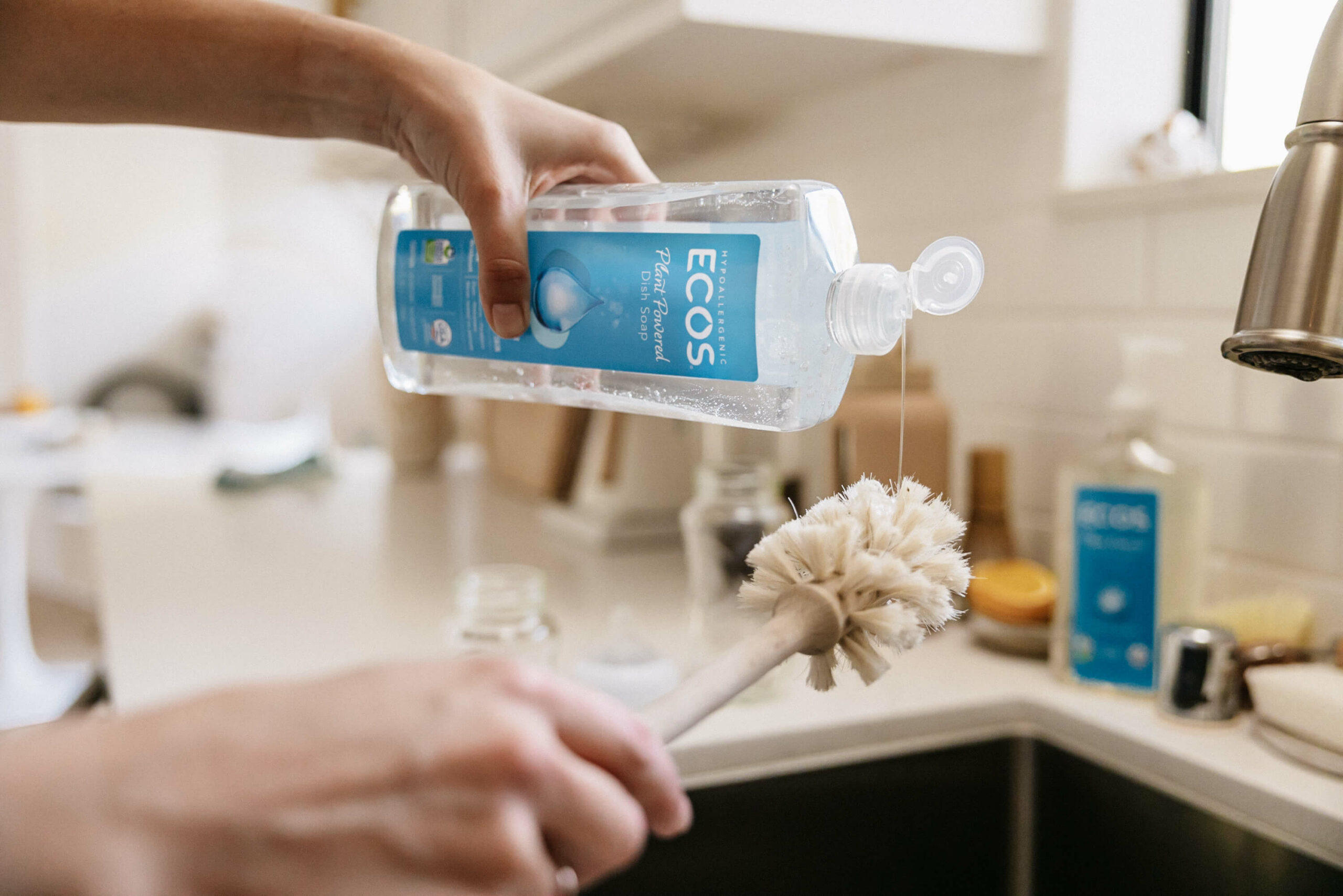
- Choose Free and Clear Formulations: Free and clear detergents are specifically formulated without any added dyes, fragrances, or harsh chemicals. These formulations are an excellent choice for people with sensitive skin or those prone to allergies.
- Test a Small Amount First: Before washing a full load of laundry, test the detergent on a small, less visible area of fabric, such as an inside seam or a hidden part of a garment. This way, you can see if there is any adverse reaction or sensitivity before using it on your entire clothing.
- Use the Recommended Amount: Follow the manufacturer’s instructions on the detergent packaging regarding the recommended amount to use per load. Using too much detergent can leave residues on clothing, leading to skin irritation. Using too little may not effectively clean your clothes, resulting in repeat washes that could aggravate your sensitive skin.
- Consider Additional Rinse Cycles: To ensure that all traces of detergent are thoroughly rinsed from your clothes, consider adding an extra rinse cycle. This will help eliminate any leftover residue that could potentially irritate sensitive skin.
- Avoid Overloading the Washing Machine: Overcrowding the washing machine can prevent the detergent from fully distributing and rinsing out. To achieve the best results, load your washer with an appropriate number of clothes, ensuring there is enough space for water, detergent, and agitation.
- Check for Allergies and Reactions: Monitor your skin closely after using a new detergent. If you experience any redness, itching, or other adverse reactions, discontinue its use immediately and try a different hypoallergenic detergent.
Remember, everyone’s skin is different, and what works for one person may not work for another. It might require some trial and error to find the best hypoallergenic detergent that suits your sensitive skin.
Specialized detergent for hard water
Specialized Detergent for Hard Water: Tips and Tricks to Find the Best Detergent
Having hard water can be quite a hassle when it comes to doing laundry. The high mineral content in hard water can often lead to clothes not being cleaned effectively, resulting in dull colors, stiff fabrics, and even residue buildup. However, with the right detergent formulated specifically for hard water, you can overcome these challenges and enjoy clean and fresh laundry every time. Here are some tips and tricks to help you find the best detergent for hard water, ensuring optimal cleaning performance:
- Look for phosphate-free detergents: Phosphates, although effective at softening water, can have negative environmental impacts. Opting for phosphate-free detergents not only helps protect aquatic life but also ensures the detergent is formulated to tackle hard water minerals without relying on harmful additives.
- Check for chelating agents: Chelating agents such as citric acid or ethylenediaminetetraacetic acid (EDTA) are known to bind with minerals in hard water, preventing them from interfering with the detergent’s cleaning action. Including these agents in the detergent’s formulation enhances its ability to combat the effects of hard water.
- Consider enzymes: Enzymes, like protease, amylase, and lipase, help break down organic stains such as grass, blood, or oil. Choosing a detergent that contains enzyme-based formulas can be beneficial when dealing with hard water, as these enzymes can work more efficiently, resulting in better stain removal.
- Opt for color-safe options: Some detergents, especially those designed for hard water, can be harsh on colors, causing them to fade or appear dull over time. To maintain the vibrancy of your clothes, select a detergent that explicitly states it is color-safe or suitable for use with vibrant fabrics.
- Read customer reviews: Before making a purchase, take the time to read online reviews from customers who have used the detergent you are considering. Look for feedback specifically related to hard water situations, as this can provide valuable insights into the product’s effectiveness.
- Evaluate cost per load: While specialized detergents for hard water may have a higher price tag than regular options, analyzing the cost per load can help you make a more informed decision. Consider the dosage required for each load and compare it to the price to determine the most cost-effective option that meets your needs.
- Experiment with trial sizes: If you are unsure which detergent will work best for your specific hard water condition, consider purchasing trial-sized or sample packages. This allows you to test different brands or formulations without committing to a larger package, ensuring you find the best detergent that delivers the desired results.
- Follow manufacturer’s instructions: To maximize the performance of any detergent, it is crucial to follow the manufacturer’s instructions precisely. This includes the recommended dosage, water temperature, and any additional tips provided, ensuring that the detergent performs optimally under hard water conditions.
By following these tips and tricks, you can find the best detergent for hard water, effectively removing stains, maintaining the quality of your clothes, and keeping them looking fresh and clean. Remember, the key lies in choosing a specialized detergent that addresses the challenges posed by hard water while being environmentally friendly and suitable for your specific laundry needs.
Final Words
You can ensure the safety of your family and the environment by choosing a non-toxic detergent. Finding the right detergent for your portable dishwasher will greatly improve your life. Choosing a phosphate-free detergent helps protect our ecosystem by reducing harmful substances in our waterways. Biodegradable detergents promote sustainability and reduce our carbon footprint. Low-sudsing detergents minimize residue and prevent clogs, ensuring optimal performance of your dishwasher. Lastly, a concentrated formula provides a powerful clean, saving you time and money. Considering these factors when selecting a detergent will not only improve your dishwashing experience but also contribute to a healthier planet.
